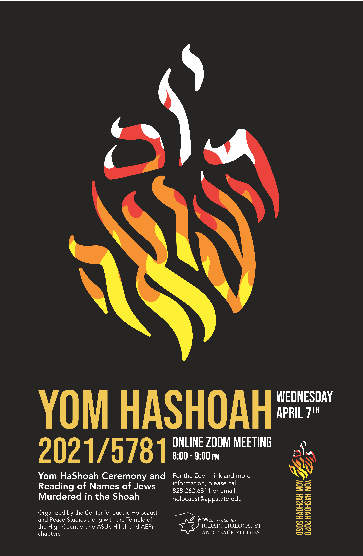

The antisemitic rhetoric and incidents seen over the past year have included notable examples of Holocaust denial, including in some cases by government officials and state-sponsored media, with particular effect on young people in many countries, as well as distortions of the Holocaust’s scope and intentionality during public demonstrations in the context of the COVID-19 public health crisis.

During 2020, these trends grew even more worrying, with widespread reports of antisemitic rhetoric on social media and in traditional media outlets, promoting outrageous conspiracy theories and attributing responsibility for the COVID-19 pandemic to Jews, as noted by the Special Rapporteur on freedom of religion or belief in an April 2020 statement and by the Special Rapporteur on contemporary forms of racism in an August 2020 report.
#Holocaust remembrance day 2021 Offline#
“In 2019, reports by the Special Rapporteur on freedom of religion or belief and the Special Rapporteur on contemporary forms of racism documented a dramatic and persistent increase in antisemitic rhetoric and incidents in many countries in recent years, both offline and online. Reminding governments of their international human rights obligations, the UN experts issued the following statement marking the 76th anniversary of the liberation of the Auschwitz concentration camp on 27 January, 1945. GENEVA (27 January 2021) – UN experts* said today States must take resolute action against rising antisemitism and ensure deniers of the Holocaust and all levels of society are effectively educated about the Holocaust and other manifestations of antisemitism. UN experts urge renewed commitment to combat antisemitism, including Holocaust distortion and denial


 0 kommentar(er)
0 kommentar(er)
